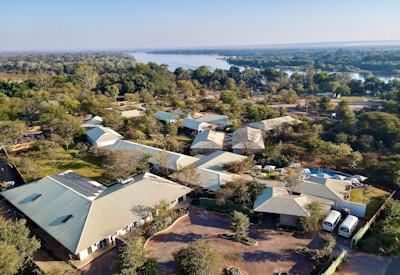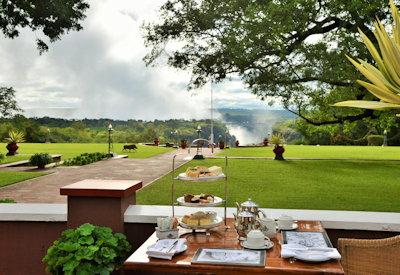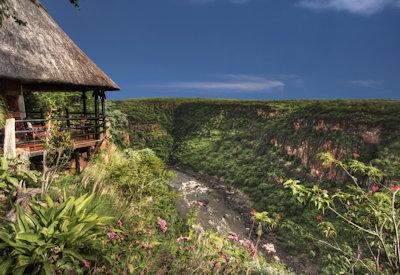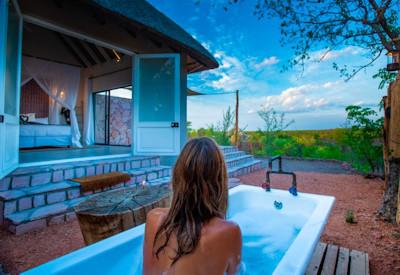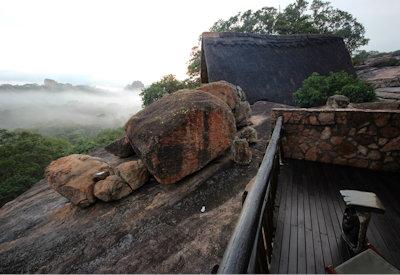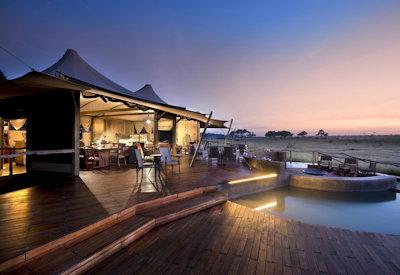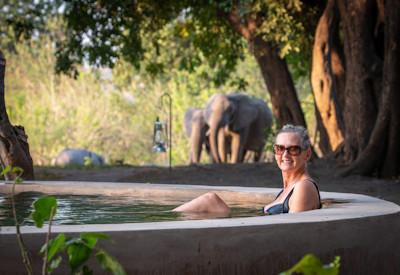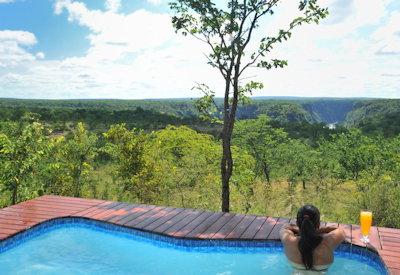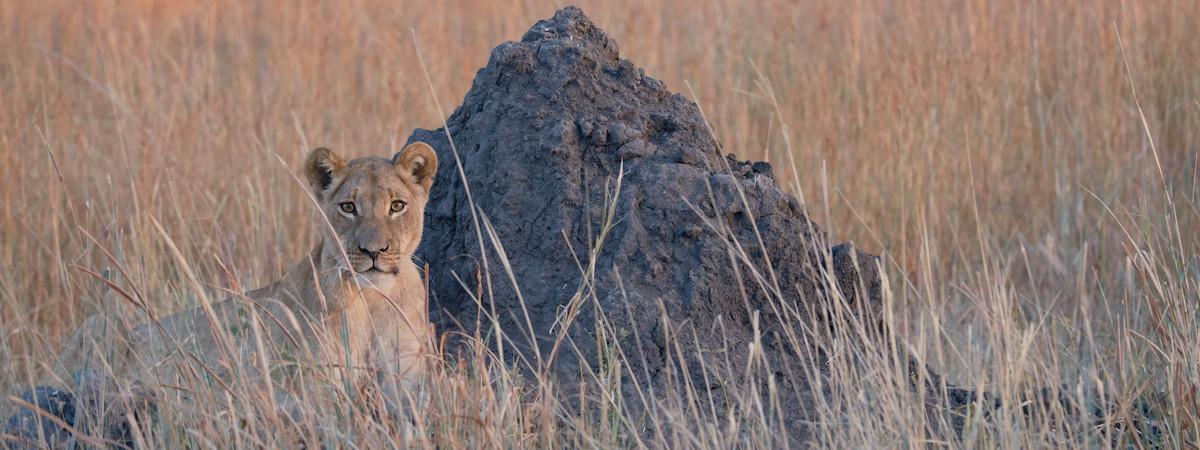
The Ultimate Guide To A Zimbabwe Safari: Top Spots And Tips
Interested in a Zimbabwe safari? This is the ultimate guide to a Zimbabwe safari that will help you plan by covering top parks, best visiting times, and key tips. Learn why Zimbabwe is an amazing safari destination, and start your adventure here.
A Zimbabwe safari is not just about spotting the Big Five; it's a journey into the heart of Africa's most pristine landscapes. From the roaring waters of Victoria Falls to the expansive plains of Hwange National Park, Zimbabwe offers a diverse range of experiences that cater to both seasoned travellers and first-time safari-goers. The country's commitment to conservation and its rich cultural heritage add layers of depth to your adventure, making it a truly enriching experience.
In this guide, we'll delve into the best national parks for wildlife viewing, the optimal times to visit for different experiences, and essential tips to ensure your safari is both safe and unforgettable. Whether you're interested in traditional game drives, walking safaris, or unique activities like canoeing down the Zambezi River, this guide has you covered. Get ready to embark on a journey that promises not just to meet but exceed your wildest expectations.
Key Takeaways
- Zimbabwe is recognized for its outstanding safari experiences, featuring diverse ecosystems and top-notch guiding, making wildlife encounters truly unforgettable.
- The peak safari season from May to October offers excellent wildlife viewing. Plan your visit between May and July, which allows for both thrilling safaris and breathtaking views of Victoria Falls.
- Engaging in unique activities like walking and canoe safaris, along with cultural experiences, ensures a rich and immersive adventure that goes beyond traditional game viewing.
Why Choose a Zimbabwe Safari?
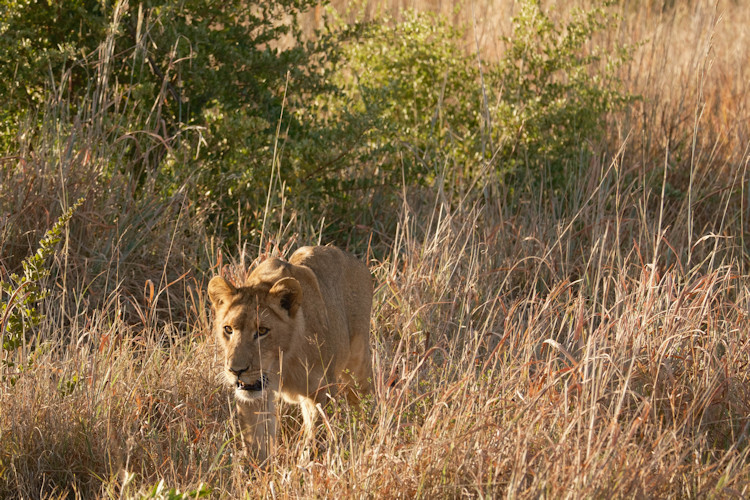
Zimbabwe stands out as a top safari destination due to its stunning national parks and diverse ecosystems. Each park is a haven for wildlife, offering sightings of the Big Five—lions, elephants, leopards, rhinoceroses, and Cape buffalo. With its rich biodiversity, Zimbabwe offers encounters with a wide array of species, turning every safari into an adventure of discovery.
One of the hallmarks of a Zimbabwe safari is the quality of its guiding. Zimbabwean guides undergo rigorous training, ensuring they possess exceptional skills and deep knowledge of the natural environment. Their expertise ensures unforgettable wildlife viewing experiences, with guides tracking animals and sharing insights about their behaviours and habitats.
Beyond traditional game drives, Zimbabwe features unique safari activities that distinguish it from other African safari destinations. Walking safaris and canoe safaris provide intimate, thrilling ways to explore the bush and rivers. Cultural experiences, such as visiting local communities and learning about their traditions, add a rich layer to your journey. These diverse offerings ensure that a Zimbabwe safari is not just a trip but a deeply immersive experience.
Best Time to Visit Zimbabwe
When planning your Zimbabwe safari, timing is crucial to ensure you experience the best of what this remarkable country has to offer. The dry season, from May to October, is widely regarded as the peak safari season. During these months, wildlife congregates around water sources, making it easier to spot animals in their natural habitats. Clear skies and mild temperatures also enhance the overall safari experience.
However, if witnessing the full glory of Victoria Falls is on your bucket list, consider visiting between February and May. This period sees the mighty Zambezi River at its peak flow, creating a spectacular display of cascading water.
To balance both safari and Victoria Falls experiences, planning your trip between May and July offers the best of both worlds.
Peak Safari Season
The dry season, spanning from May to October, is the premier time for wildlife viewing in Zimbabwe. During these months, the landscape transforms, with animals gathering around dwindling water sources, making sightings more frequent and predictable. The clear skies and mild temperatures also contribute to an ideal safari environment, perfect for walking safaris and game drives.
However, the influx of travellers during this peak season can lead to higher prices and busier parks. Despite this, the chance to witness the incredible wildlife in such pristine conditions makes it worth the visit.
For those interested in canoe safaris, May to September is also the optimal period to paddle through the serene waters of Mana Pools National Park, observing wildlife from a unique vantage point.
Optimal Time for Victoria Falls
Victoria Falls, known locally as "The Smoke That Thunders," is best viewed from February to May, when the Zambezi River is in full flood. This period offers the most spectacular views of the falls, with water thundering over the cliffs in a breathtaking display of nature's power. April and May are particularly notable as the falls reach their peak flow, creating a mist that can be seen from miles away.
Visiting Victoria Falls later in the year, especially from September onwards, can be disappointing as the water levels drop significantly, leaving parts of the falls dry. Therefore, timing your visit to coincide with the high water season ensures you experience the falls in all their mighty splendour.
Balancing Both Experiences
To enjoy both a vibrant safari and the full spectacle of Victoria Falls, plan your trip between May and July. This period allows you to witness the abundant wildlife during the dry season while still catching the tail end of the falls' high water flow. It's a perfect harmony of both experiences, ensuring you don't miss out on either.
Many travellers opt for guided tours that take them to both Victoria Falls and Livingstone on the Zambian side, often through the day or half-day trips. This approach offers a comprehensive view of the falls and surrounding areas, enriching your adventure with cultural and natural wonders.
Top National Parks in Zimbabwe
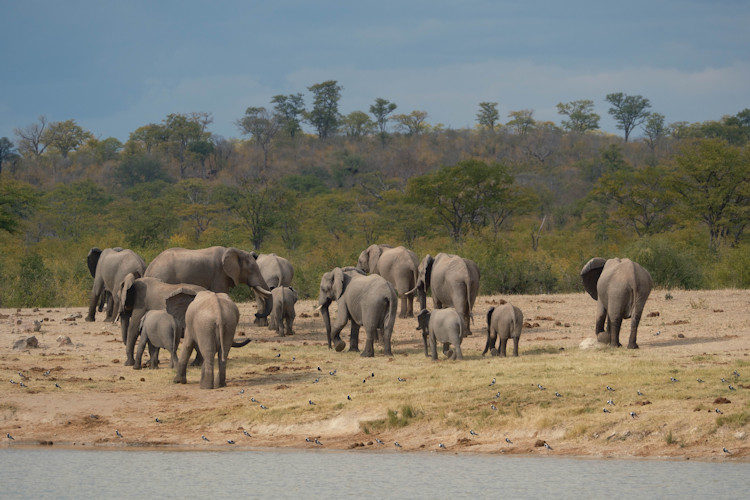
Zimbabwe is home to some of southern Africa's most celebrated national parks, each offering unique landscapes and wildlife experiences. Hwange, Mana Pools, Gonarezhou, and Matusadona are the crown jewels of Zimbabwe's national parks, each providing a distinct safari adventure. These parks are not just about wildlife viewing; they offer a variety of activities that cater to different interests and adventure levels.
From the elephant-rich plains of Hwange to the scenic beauty of Mana Pools along the Zambezi River, each park has its unique charm. Whether you're interested in walking safaris, canoe safaris, or simply enjoying the tranquillity of nature, these parks have something for everyone.
Hwange National Park
Hwange National Park, the largest wildlife reserve in Zimbabwe, is renowned for its impressive elephant population, with an estimated 40,000 elephants roaming the park. The park's diverse ecosystems support over 100 species of mammals and nearly 400 species of birds, making it a paradise for wildlife enthusiasts.
One of the highlights of Hwange is the Nyamandhlovu Pan, a prime spot for observing elephants. For a more immersive experience, walking safaris in Hwange offers a unique way to explore the bush, allowing you to connect with nature on a deeper level and witness wildlife up close.
Mana Pools National Park
Mana Pools National Park is a UNESCO World Heritage Site known for its stunning scenery and diverse wildlife. The park's floodplains, dotted with pools formed by the Zambezi River, create a picturesque backdrop for wildlife viewing. Popular activities here include walking safaris and canoe explorations, which offer unique perspectives of both land and aquatic animals.
Mana Pools is also notable for its diverse predator population, including African wild dogs, making it a thrilling destination for safari-goers. The park's remote location adds to its allure, providing a sense of adventure and solitude.
Gonarezhou National Park
Gonarezhou National Park, part of the Great Limpopo Transfrontier Park, is known for its rugged landscapes and dramatic red cliffs above the Runde River. The park's rich biodiversity includes large herds of elephants and a variety of bird species.
Despite its beauty and wildlife, Gonarezhou sees fewer visitors, making it a perfect destination for intrepid travellers seeking solitude and adventure. The park's remote location and challenging terrain add to the sense of exploration and discovery.
Matusadona National Park
Located on the southern shore of Lake Kariba, Matusadona National Park offers unique water-based safaris on Lake Kariba, providing opportunities to see a variety of wildlife, including the endangered black rhino. Canoe trips and walking safaris are popular activities, allowing visitors to experience the park's diverse ecosystems up close.
The park's combination of aquatic and terrestrial habitats makes it a fascinating destination for wildlife enthusiasts. Whether you're paddling along the lake's shores or trekking through its bush, Matusadona, Africa's adventure capital, promises a memorable safari adventure.
Planning Your Zimbabwe Safari
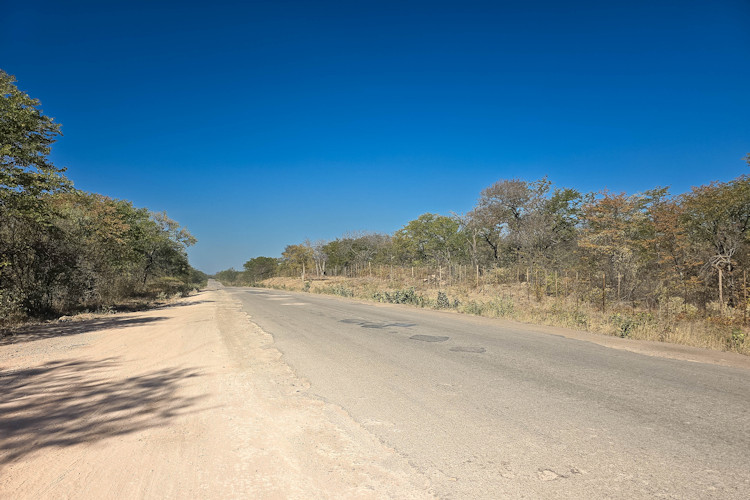
Planning a Zimbabwe safari involves several key considerations, including budgeting, Zimbabwe accommodation, and travel logistics. Each of these elements plays a crucial role in ensuring a smooth and enjoyable safari experience. By carefully planning each aspect of your trip, you can maximize your time in Zimbabwe and make the most of your adventure.
From choosing the right time to visit to selecting accommodations that fit your budget and preferences, thorough planning is essential. This section will guide you through the key steps to help you prepare for your Zimbabwe safari.
Budgeting for Your Safari
The cost of a Zimbabwe safari varies based on several factors, including the size of your budget, whether you stay in private concessions or national parks, and the types of activities you choose. On average, a Zimbabwe safari costs around $8,500 per person (but this will change on accommodation and transfer options and the number of days spent on safari), with safari lodges and camps prices ranging from $500 to $2,000 per night, depending on the level of luxury.
It's important to consider what's included in your safari package, such as meals, drinks, park fees, and taxes, to avoid any surprises. Planning your budget carefully will help ensure you have a clear understanding of the costs involved and can make the most of your safari experience.
Have a look-see at out Zimbabwe Safari Planner.
Choosing the Right Accommodation
Zimbabwe offers a range of accommodation options to suit different preferences and budgets. From luxury safari tents at Ruckomechi Camp to more rustic experiences at Rhino Safari Camp, there's something for everyone. Typically, these accommodations include meals, most drinks, park fees, and taxes in their all-inclusive rates.
For those seeking a more adventurous experience, mobile campsites in remote areas of the parks provide a unique way to immerse yourself in the wilderness. Whatever your preference, choosing the right accommodation is key to enhancing your overall safari experience.
Unique Safari Experiences in Zimbabwe
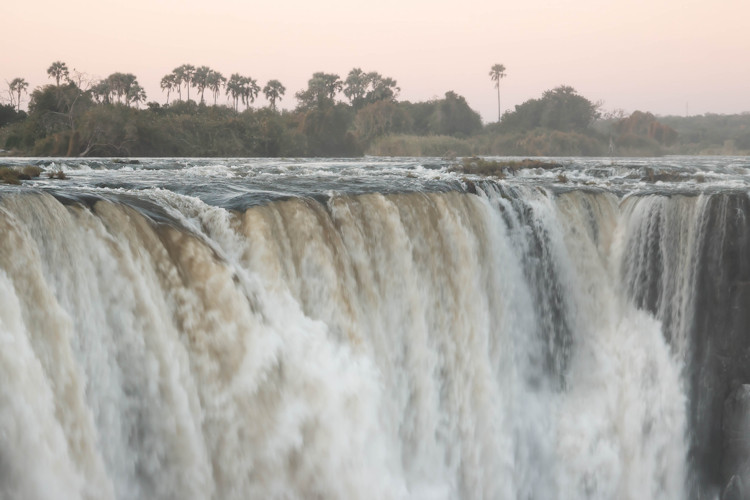
Zimbabwe offers a variety of unique safari experiences that go beyond traditional game drives. From walking safaris that bring you up close to the wildlife to canoe safaris that provide a serene perspective of the bush, there's something for every type of adventurer. These activities add an extra layer of excitement and immersion to your safari.
Beyond the thrill of encountering wildlife, cultural experiences offer a chance to connect with local communities and learn about their traditions. This section explores some of the unique experiences that make a Zimbabwe safari truly unforgettable.
Walking Safaris
Walking safaris in Zimbabwe are renowned for their high guiding standards and the intimate connection they offer with nature. Exploring the bush on foot allows you to witness wildlife up close and learn about the intricate details of the environment. In Matusadona National Park, you can even track black rhinos, adding a thrilling element to your safari.
These safaris offer a unique and personal way to experience the wilderness, turning every encounter with wildlife into a memorable adventure. Whether you're tracking big cats or observing smaller creatures, walking safaris offer a profound connection to the natural world.
Canoe Safaris
Canoe safaris in Mana Pools National Park offer a distinct and serene way to explore Zimbabwe's wildlife. Paddling along the Zambezi River, you can observe hippos, elephants, and other animals from a unique vantage point. The calm waters and close encounters with wildlife provide an unforgettable experience.
These safaris allow you to interact with both aquatic and terrestrial wildlife, enhancing your overall safari adventure. The peaceful environment of the river enables you to witness animal behaviours without disturbing them, making for a truly immersive experience.
Cultural Experiences
Cultural experiences in Zimbabwe add a rich dimension to your safari, offering insights into local history and traditions. Engaging with local communities through guided tours and traditional dance performances allows you to connect deeply with the culture. These experiences provide a meaningful way to understand and appreciate the heritage of Zimbabwe.
Visiting local villages and participating in cultural activities enriches your safari, making it more than just a wildlife adventure. It becomes a journey of discovery, both of the land and its people, creating memories that last a lifetime.
Combining Destinations: Beyond Zimbabwe
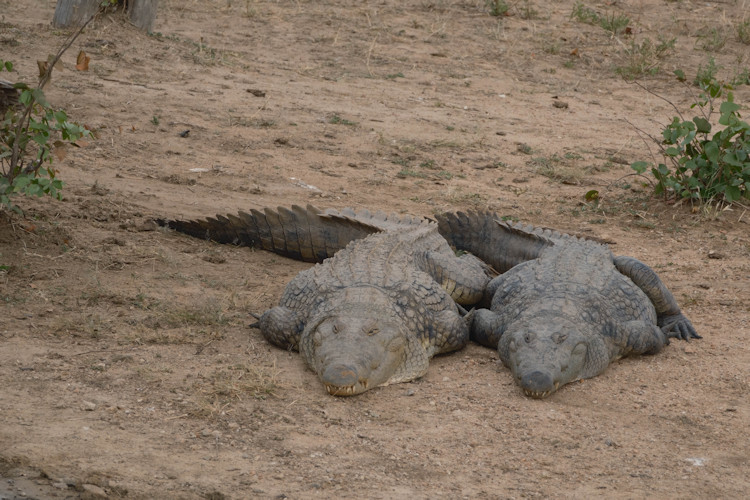
Enhance your Zimbabwe safari by combining it with visits to neighbouring countries in southern Africa, creating a richer and more diverse travel itinerary. A popular choice is pairing Hwange National Park with South Africa's renowned Kruger National Park, offering a seamless blend of Zimbabwe's unspoiled wilderness and South Africa's well-known safari experiences.
Combining Victoria Falls with Botswana's Chobe National Park offers the thrill of the falls, followed by abundant wildlife in Chobe. Gonarezhou National Park, part of the Great Limpopo Transfrontier Park, also allows for cross-border exploration into South Africa and Mozambique, enriching your safari with varied landscapes and wildlife encounters.
Positive Impact and Conservation Efforts
Choosing a Zimbabwe safari not only provides a remarkable adventure but also supports local communities and conservation efforts. Safari tourism plays a significant role in boosting local economies, creating jobs, and funding essential community projects that enhance infrastructure and services. This positive impact extends to wildlife conservation, ensuring that the natural habitats and species are protected for future generations.
Zimbabwe is committed to conservation, with large reserves and cross-border parks that enhance wildlife protection. Initiatives like the Imire Rhino & Wildlife Conservancy showcase the country's dedication to conserving endangered species such as rhinos and elephants. By participating in safari activities, travellers contribute to these efforts, leaving the areas they visit better than they found them.
Community Benefits
Safari tourism in Zimbabwe significantly boosts local economies by creating jobs and generating income for communities. The revenue from tourism often funds vital community projects, improving access to clean water, healthcare, and education. These efforts enhance the overall well-being of local populations and create a more sustainable future for the region.
Moreover, safari tourism helps to raise awareness about the importance of conservation, fostering a sense of pride and responsibility among local communities. This involvement ensures that the benefits of tourism are felt broadly, contributing to both economic development and environmental stewardship.
Wildlife Conservation
Zimbabwe's commitment to wildlife conservation is evident in its extensive network of national parks and private conservancies. These areas provide safe havens for diverse wildlife, including endangered species like the black rhino. The Savé Valley Conservancy, for instance, offers exceptional wildlife viewing while integrating sustainable hunting practices to manage animal populations effectively.
Efforts to protect wildlife are supported by both government and private initiatives, ensuring that the country's natural heritage is preserved. These conservation programs not only protect animal species but also maintain the ecological balance, supporting the health of the entire ecosystem.
Safaris in Zimbabwe thus play a crucial role in sustaining these efforts, making each visit a contribution to a larger cause.
Summary
A Zimbabwe safari offers an unparalleled adventure, combining breathtaking landscapes, diverse wildlife, and rich cultural experiences. From the vast plains of Hwange National Park to the serene waters of Mana Pools, each destination provides unique opportunities to connect with nature and witness the beauty of Africa's wildlife. By planning your trip carefully, considering the best time to visit, and choosing the right accommodations, you can ensure a smooth and memorable safari experience.
Zimbabwe's commitment to conservation and community development further enhances the value of your safari, making it more than just a travel experience but a contribution to a sustainable future. Whether you're exploring the bush on foot, paddling along the Zambezi River, or engaging with local cultures, a Zimbabwe safari promises an adventure of a lifetime. So pack your bags and get ready to explore the wild heart of Africa!
Frequently Asked Questions
What is the best time to visit Zimbabwe for a safari?
The best time to visit Zimbabwe for a safari is during the dry season from May to October, as wildlife is more visible around water sources. This ensures an exciting and rewarding experience!
Can I visit Victoria Falls and go on a safari on the same trip?
Absolutely! Visiting Victoria Falls and going on a safari in the same trip is not only possible but highly rewarding, especially between May to July when you can experience the best of both worlds.
What are some unique safari activities in Zimbabwe?
Zimbabwe's unique safari activities like walking safaris, canoe safaris, and cultural experiences allow you to connect deeply with nature and local communities. Embrace these adventures for an unforgettable journey!
How much does a typical Zimbabwe safari cost?
A typical Zimbabwe safari costs about $8,500 per person, with accommodation options varying from $500 to $2,000 per night (season dependant), offering beautiful choices for every budget. Embrace the adventure; it's bound to be unforgettable!
How does safari tourism benefit local communities and conservation efforts?
Safari tourism significantly benefits local communities and conservation efforts by creating jobs and funding community projects, which helps ensure a sustainable future for both people and wildlife. Embracing this tourism model leads to economic growth and strengthens conservation initiatives.
Insika Lodge
Nestled on the edge of Victoria Falls in Zimbabwe, Insika Lodge offers a luxury safari experience with stunning natural beauty. Capturing African charm, Insika provides a serene escape with exhilarating adventures.
With a choice of rooms overlooking lush gardens and waterholes, guests can immerse themselves in captivating wildlife and landscapes. At Insika Lodge, each day is a new journey as you explore the Zambezi River, enjoy gourmet meals, and experience the perfect mix of adventure and relaxation.
Victoria Falls Hotel
Nestled in the heart of Zimbabwe, the Victoria Falls Hotel stands as a testament to timeless elegance and unparalleled luxury. With its rich history dating back to 1904, this iconic hotel offers a unique blend of classic charm and modern amenities, making it the ideal retreat for discerning travellers.
Just a stone's throw from the breathtaking Victoria Falls, guests can indulge in spectacular views, exquisite dining experiences, and the soothing sounds of nature, all while enjoying the impeccable service that has made this hotel renowned across the globe.
Gorges Lodge
Gorges Lodge and Little Gorges lodge are built on top 200-metre high cliffs above the Zambezi River below, offering guests a more idyllic and peaceful experience away from the busyness surrounding the Falls and the town.
One of the betters safari lodges for those looking for a bit more of a safari experience.
Nantwich Lodge Hwange
Prepare to embark on an extraordinary journey at Nantwich Lodge Hwange, where eco-friendly luxury meets the heart of Africa. This enchanting lodge invites you to experience the wild beauty of Hwange National Park while indulging in comfortable accommodations that harmonise with the landscape.
Whether you are seeking thrilling game drives, tranquil bush walks, or wish to unwind amidst nature, Hideaways Nantwich Lodge Hwange is truly a sanctuary for adventure seekers and nature lovers alike.
Big Cave Camp
Big Cave Camp is nestled deep within the UNESCO World Heritage Site, an area renowned for its breathtaking natural beauty and profound cultural significance. From this exceptional base, guests have an unparalleled opportunity to immerse themselves in the region's wonders.
Explore ancient granite boulders and historic sites like Rhodes Grave and World's View for breathtaking scenery. Take part in guided rhino tracking—an intimate encounter that supports conservation efforts. Discover ancient San rock paintings and spot diverse wildlife on exhilarating game drives.
Somalisa Acacia Camp
Nestled within the heart of Hwange National Park, Somalisa Acacia Camp offers an enchanting retreat for wildlife enthusiasts and families alike. With its four luxurious tented suites, this intimate safari camp combines comfort with the thrill of the African wilderness.
Guests can enjoy the stunning natural surroundings, join exciting game drives and walking safaris, or capture moments at the elephant pool. Whether you want adventure or relaxation, Somalisa Acacia Camp offers a memorable experience in one of Zimbabwe's top wildlife destinations.
Bumbusi Wilderness Camp
Nestled in the heart of Hwange National Park, Bumbusi Wilderness Camp offers an enchanting retreat, inviting guests to reconnect with nature in an idyllic setting. This spectacular safari lodge seamlessly blends into the stunning landscape, offering an authentic experience amidst nature's beauty.
With its meticulously crafted stone and thatch chalets, Bumbusi serves as an inviting sanctuary where comfort meets adventure. Guests are treated to a wealth of activities, from guided walking safaris to immersive wildlife experiences, ensuring that each moment at the camp is nothing short of unforgettable.
The Elephant Camp
Located in Victoria Falls National Park, The Elephant Camp offers a mix of adventure and tranquillity. With its intimate setting and luxurious accommodations, guests can enjoy the stunning natural surroundings and personalized service.
Whether you seek thrilling wildlife encounters or peaceful moments beside your private plunge pool, The Elephant Camp promises an unforgettable experience that showcases the breathtaking beauty and rich culture of the region.

